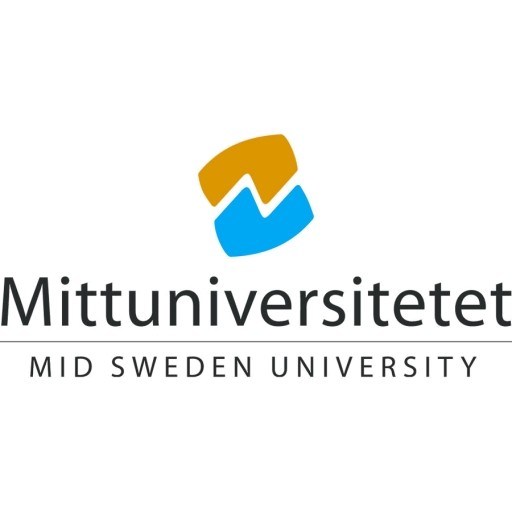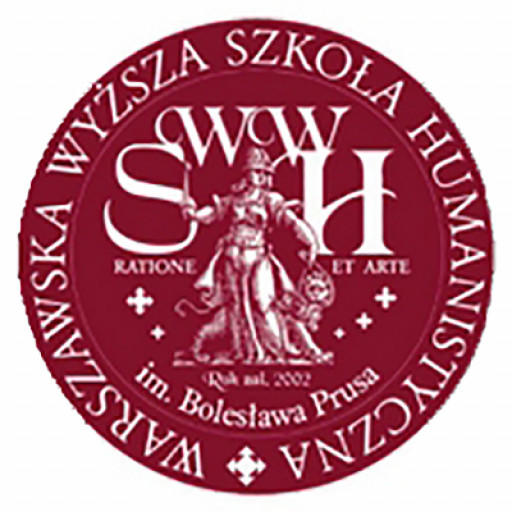Photos of university / #unlincoln
The Bachelor of Journalism at the University of Nebraska–Lincoln is a comprehensive program designed to prepare students for successful careers in the dynamic and ever-evolving field of journalism. This program offers a rigorous curriculum that combines foundational principles of journalism with practical, hands-on experience in various media platforms, including print, broadcast, digital, and multimedia journalism. Students have the opportunity to develop core skills such as reporting, writing, editing, photography, videography, and media ethics, ensuring they are well-equipped to inform, engage, and serve diverse audiences in a rapidly changing media landscape.
The program emphasizes a strong ethical foundation and critical thinking skills, encouraging students to analyze the societal impact of journalism and adhere to high standards of accuracy, fairness, and integrity. Students benefit from access to state-of-the-art facilities, including multimedia labs and editing suites, along with dedicated faculty who are experienced journalists and media professionals. Practical training is integrated throughout the curriculum through internships, newsroom projects, and collaborations with local media outlets, providing real-world experience and networking opportunities.
In addition to practical skills, the program fosters an understanding of media law, media technology, and communication theories, enabling graduates to adapt to emerging platforms and technologies. The Department of Journalism at Nebraska also offers specialized tracks or concentrations, allowing students to focus on areas such as sports journalism, public relations, magazine editing, or digital production. The program encourages active participation in student media organizations, internships, and conferences to build a professional portfolio and industry connections.
Graduates of the Bachelor of Journalism program at the University of Nebraska–Lincoln are well-prepared to pursue careers in reporting, editing, broadcasting, digital media, public relations, communications management, and related fields. The program also provides a strong foundation for students interested in graduate education or careers in media policy, academia, and strategic communication. With a commitment to journalistic excellence and responsible storytelling, the University of Nebraska–Lincoln’s journalism program aims to shape the next generation of innovative, ethical journalists who can effectively serve their communities and contribute to a well-informed society.
The professional journalism specialization was designed for working journalists who want to enhance their skills and knowledge in the digital media world. Instead of specializing in a particular medium, students will learn how to produce and analyze news and information across multiple platforms.
Under this option, the student must earn a minimum of 36 semester hours of credit, at least 18 of which must be earned in courses open exclusively to graduate students (900 or 800 level without 400 or lower counterparts). The program must include not fewer than 18 hours in the major. Students must complete a capstone project and intensive coursework in place of a minor. Fifteen hours of coursework is required and student selects 21 hours of electives.
| 1. Required Courses (15 hours) | |||
| JGRD 901 | Mass Media Issues & Ethics* | 3 cr. hr. | |
| JGRD 902 | Multi-platform Journalism* | 3 cr. hr. | |
| JGRD 903 | Media Management* | 3 cr. hr. | |
| JGRD 992 | Professional Project | 6 cr. hr. | |
| 2. Elective Courses (21 hours), such as: | |||
| BRDC 862 | Advanced Production | 3 cr. hr. | |
| BRDC 869 | Advanced Cinematography/Videography | 3 cr. hr. | |
| BRDC 872 | Advanced Reporting | 3 cr. hr. | |
| BRDC 873 | Broadcast Documentary | 3 cr. hr. | |
| JGRD 809 | Seminar in Media Law* | 3 cr. hr. | |
| JGRD 811 | Seminar in Media History* | 3 cr. hr. | |
| JGRD 915 | Mass Media Theory* | 3 cr. hr. | |
| JGRD 919 | Mass Media Research* | 3 cr. hr. | |
| JGRD 954 | Government and the Media* | 3 cr. hr. | |
| JOMC 808 | Politics and the Media | 3 cr. hr. | |
| JOMC 812 | Literature of Journalism | 3 cr. hr. | |
| JOMC 822 | Race, Gender and Media | 3 cr. hr. | |
| JOMC 886 | Mass Media Law | 3 cr. hr. | |
| JOMC 887 | Mass Media and Society | 3 cr. hr. | |
| JOUR 801 | Depth Reporting | 3 cr. hr. | |
| JOUR 804 | Digital Photojournalism I | 3 cr. hr. | |
| JOUR 806 | Digital Photojournalism II | 3 cr. hr. | |
| JOUR 807 | Investigative & Computer-Assisted Reporting | 3 cr. hr. | |
| JOUR 814 | Government Controls of Information | 3 cr. hr. | |
| JOUR 867 | School Publications | 3 cr. hr. | |
| JOUR 890 | Global Multimedia Photojournalism Project | 3 cr. hr. | |
| JOUR 897 | Nebraska News Service | 3 cr. hr. | |
| Elective outside the College with permission from the student's committee | |||
* open to graduate students only
- Online Application for Graduate Admission
- $50 non-refundable application processing fee
- One (1) set of official transcripts
- If your native language is not English: verification of English proficiency
- If you are not a US citizen and you expect to hold an F or J visa: financial resource information
Items Required by Journalism and Mass Communications in GAMES
After you apply, allow one business day for us to establish your access to GAMES, our online application system, where you will complete these departmental requirements:
- Entrance exam(s): GRE
- Competitive Score: Upper half of percentile range on verbal section and 4.0 on analytical writing
- Minimum TOEFL: Paper-600 Computer-250 Internet-100
- Three letters of recommendation—At least two (2) should be academic references
- Statement of goals and objectives
- Resume
- Portfolio of work
- *Note: ALL work must be submitted electronically through GAMES
Application Deadlines: February 1 for Fall and September 1 for Spring (NO summer admits)
To send your GRE and TOEFL scores to the University of Nebraska-Lincoln use the institution code 6877.
The financing of the Professional Journalism program at the University of Nebraska–Lincoln involves a combination of tuition fees, scholarships, assistantships, and financial aid sources designed to support students throughout their academic journey. Tuition rates for in-state students are generally more affordable compared to out-of-state students, encouraging both local and national applicants to pursue their degrees. In addition to standard tuition, students may incur fees related to specific coursework, laboratory access, and technology resources essential for journalism education, such as multimedia production studios and computer labs.
To assist students financially, the university offers a range of scholarships aimed at journalism majors, including merit-based awards for academic excellence, diversity scholarships to promote inclusion, and need-based grants for students demonstrating financial need. Many students also receive aid through federal and state programs, such as Pell Grants and state-funded scholarship programs, which can significantly reduce the overall cost of attendance. The university's financial aid office provides support in navigating these options and in completing the Free Application for Federal Student Aid (FAFSA).
Graduate students in the program have opportunities for funding through teaching assistantships, research assistantships, and fellowships that not only provide financial support but also enrich their educational experience. Teaching assistantships typically involve assisting faculty with course instruction, grading, or research, and often include tuition waivers and stipends. Research assistantships allow students to work on journalism-related projects funded by grants or university research initiatives.
Students also benefit from external funding opportunities provided by journalism organizations, media companies, and philanthropic foundations that support educational advancement in journalism. Financial planning is encouraged early in the program to ensure all costs are accounted for and adequate funding is secured. Overall, the university strives to make the Professional Journalism program accessible through a comprehensive financial support system, enabling students to focus on developing their skills and pursuing their career goals without undue financial burden.
The Professional Journalism program at the University of Nebraska–Lincoln is designed to prepare students for dynamic careers in the diverse field of journalism and media. The curriculum emphasizes a strong foundation in traditional journalistic principles, combined with modern skills necessary for success in today's rapidly evolving media landscape. Students gain hands-on experience in news writing, editing, reporting, photojournalism, and multimedia storytelling through coursework, workshops, and real-world projects. The program integrates theoretical understanding with practical application, ensuring graduates are well-equipped to pursue careers in print, broadcast, digital, and social media platforms.
Students have opportunities to participate in student-run media outlets such as the Daily Nebraskan newspaper, Nebraska Exposed magazine, and Huskers Radio Network, providing invaluable experience in producing content for a live audience. The program also encourages internships and collaborations with local news organizations, enhancing professional development and networking. Faculty members are experienced journalists and scholars who bring industry insights and mentorship to their teaching.
The university's facilities support multimedia journalism education with state-of-the-art labs, studios, and equipment. The program emphasizes ethics, legal considerations, and responsible journalism, preparing students to uphold standards of integrity and professionalism. Graduates from the program often find employment in various media outlets, public relations firms, corporate communications, and digital media companies. The Professional Journalism program at Nebraska is committed to fostering innovation, critical thinking, and a commitment to serving the public interest through high-quality journalism.






